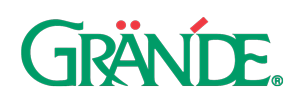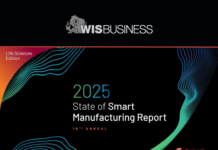Strong working relationships between farmers and processors establish clear expectations of the product and please consumers, says a supply chain expert at Grande Cheese Company.
Greg Siegenthaler, vice president of milk marketing and supply chain at the Fond du Lac-based cheese company, will be a panelist at this year’s Dairy Strong conference. The virtual event, put on by the Dairy Business Association, starts today and runs through Thursday. Siegenthaler presents Wednesday at a panel called “Building relationships: Farmer and processor insights.”
DBA spokesman Jamie Mara said the topic stemmed from a Dairy Strong presentation last year that envisioned the farmer of the future. One of the points was the need for a more transparent and collaborative relationship between farmers and the processors. Part of that need is driven by customers’ desire to know where their food comes from and whether it’s being responsibly produced.
“The disruptions from COVID only made this need more apparent,” Mara said. “Communication is so important. It builds trust and mutual understanding.”
Those supply chain disruptions were a challenge for Grande Cheese, Siegenthaler told WisBusiness.com. Restaurants are a large part of Grande’s business. When eateries closed down, it forced the cheese company to pivot and redirect their milk into other channels, such as retail.
Grande made other moves in the past year to meet consumer demands, such as signing the U.S. Dairy Stewardship Commitment.
“That’s another indicator from Grande as well as other producers and processors … about our commitment to sustainability efforts,” said Grande spokeswoman Kelly Norton. She added that consumers are demanding animal welfare, sustainability, reduction in greenhouse gas emissions, and are interested in how their food gets from the farm to the table.
“Some of that is easy to manage from a business perspective, and others is really complicated and so it does require a heightened level of producer and processor leading in collectively as partners to try to solve that,” Norton said, noting that decisions can be both industry-led and consumer-led.
Siegenthaler explained that progressive producer-processor relationships may expand beyond one processor. Grande Cheese, for example, is the first buyer of milk. The company uses components of the milk for its products. Then, it remarkets the other products, such as milkfat, that could go to an ice cream plant.
“The producer needs to know that their first buyer isn’t the only person that has say in what their milk needs to look like. There are many other brands that have a say and they’re all weighing in,” he said.
Grande commits itself to a producer-direct supply — it has a direct relationship with the producers it’s purchasing from, Siegenthaler said. Establishing a long-term, business-to-business relationship allows Grande and producers to look at what’s important as buyer and seller. Grande refers to its four corporate-social responsibility initiatives that include business sustainability and impact on the environment.
“It’s really those four pillars that we look to better understand how our producers, suppliers would like to conduct business and at the same time be transparent on how we expect business to be conducted,” Siegenthaler said. “We need to know if we’re going to continue to reinvest in processing capacity here in Wisconsin that there’s a viable producer supply behind it.”
Siegenthaler, who serves on the DBA board, said he looks forward to the industry collaboration at the Dairy Strong conference. But this year, the collaboration will be done virtually.
“The virtual conference provides flexibility,” Siegenthaler said. He added that it may encourage those with a long commute, that hadn’t been able to attend in Madison before, to register.
Register for the conference here: http://dairystrong.org/registration/
-By Stephanie Hoff
WisBusiness.com






